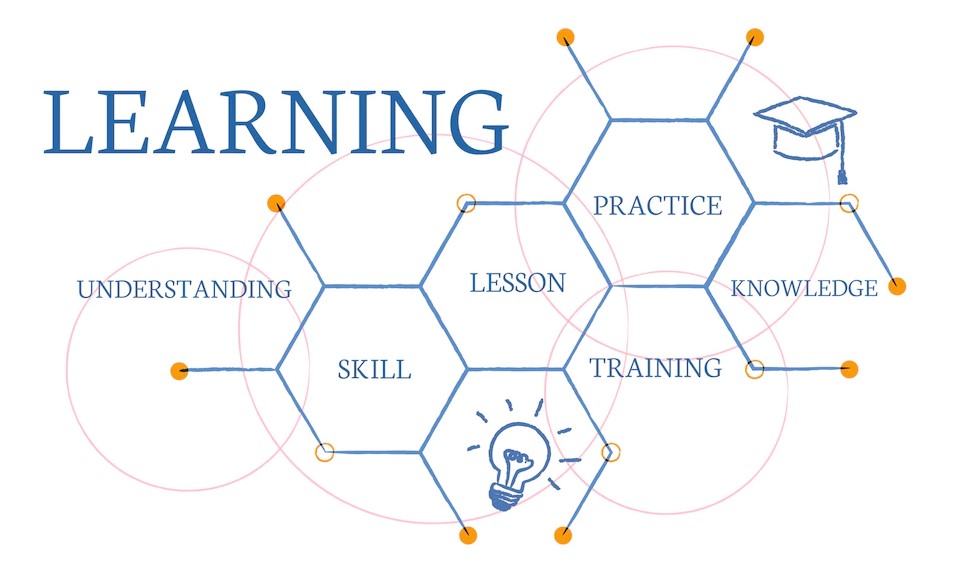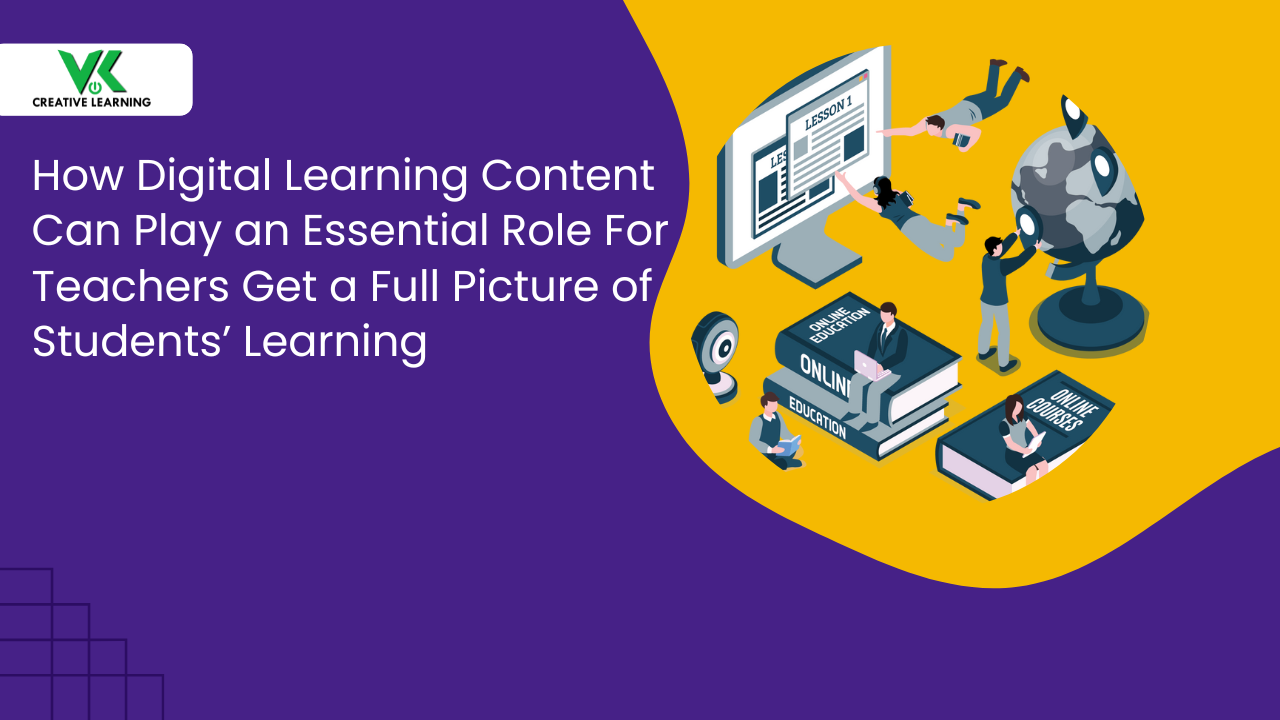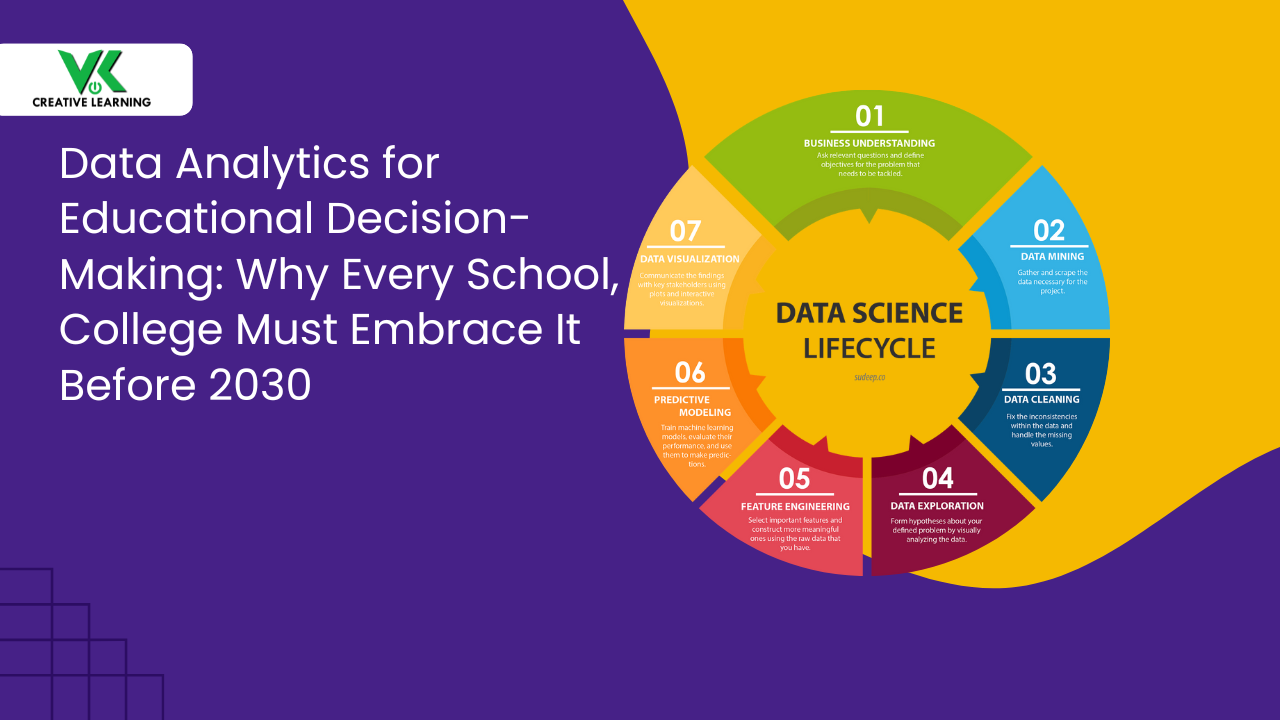What is The Best Option – Going For an LMS Or E-Learning Platform?
May 28, 2022
Sometimes, it becomes difficult to manage online courses along with administrative tasks, associated with employee training. Hence, you may think of having an eLearning tool that provides access to all the online courses at one go and facilitates the assignment of the courses as per the requirements.
You may also wish to have a learning management system (LMS) that allows you to schedule the training programs as per your wish. However, you may think it may cost you a lot to have a separate tool for the e-learning platform and an LMS system for scheduling training sessions.
The good news is that you don’t have to purchase a separate e-learning platform and a separate LMS system, as e-learning companies like VK Creative Learning (VKCL) offer a learning management system (LMS) integrated within an e-learning platform.
For many, it is confusing to understand how an e-learning platform is different from LMS or what is an e-learning platform and what is an LMS. We will answer these questions and provide the benefits of having LMS within an e-learning platform.
Understanding eLearning platforms
An e-learning platform, a digital platform, allows the content creators to create online courses and share them with the learners for training purposes. This allows the learners to download the content as and when they need it.
Understanding what LMS is?
A learning management system, also called LMS, allows the delivery of e-learning content through a website or mobile app. Thus, with LMS, you can choose what content you want and accordingly, download it. In other words, an LMS allows you to choose the content irrespective of whether you are the instructor or the learner. It also makes the work of the instructor easy as they can pick up the content they want and start teaching the required module.
Getting an understanding of the difference between an e-learning platform and LMS
Now that you have an idea about an e-learning platform and LMS, you may have a doubt about the difference between the two. The biggest difference between the two is that, with LMS, you are empowered with the option of file sharing, messaging, data storage, and collaboration with other tools or websites.
A Learning Management System (LMS) can be hosted or it can be on your own premise. In comparison to LMS, an e-learning platform basically consists of an online system that would allow you to upload or download the content.
So, what is the best option – going for an LMS or e-learning platform?
As aforementioned, nowadays, e-learning development companies like VKCL offer an e-learning platform that has LMS integrated within it. This is a major benefit as it not only allows you to upload and download the content but also manage the content the way you want it. For example, you can share the content with whomever you want. The learners can access the content whenever they need and they can access the content that they would like to learn.
A look at various benefits of having an e-learning platform with LMS integrated within it
There are a host of benefits that you would find when you have an e-learning platform with LMS integrated within it. The various benefits of an LMS-based e-learning platform are as follows:
Access to all tools and functionality in one place:
Having an e-learning platform alone will not provide you with all the functionalities that you need to manage your content sources efficiently. Thus, with an LMS-based e-learning platform, you will have all the tools and functionality in one place which you can use to create and later publish e-learning courses.
With LMS, you will have all the required features to manage learning resources. Importantly, from learners' progress point of view, you can track their progress and identify their weaknesses.
You can also allocate the assignments to the learners and schedule exams as when required.
Streamlined digital learning experience:
The learners have a streamlined digital learning experience as they can access the content at their will. They can get access to the content they want topic-wise and they can interact with other users or have a discussion with them regarding a topic. They also get to have a look at their learning progress and rectify themselves in the areas where self-improvement are needed.
Easy to manage:
It becomes easy for an organization to conduct a knowledge management process with the help of an e-learning platform having the feature of LMS. You can upload the learning course on the internet or intranet so that your employees can check it out and download it irrespective of which device they’re using. Being an organization, you also get the benefit of assigning courses to individuals or groups and creating curriculum or training parts for the learners.
Offering the customized experience to the learners:
You can create your own e-learning course and training material and share it on the LMS. However, if you feel that an e-learning course is not applicable to everyone in the company, then you can create a customized e-learning course for a particular department or a group of employees to suit the learning requirements.
Importantly, during the creation of the e-learning course materials, there is no hard and fast rule when it comes to the placement of logos or an organization’s name on the e-learning course. You can design your courses as per your wish for any type of device that a learner prefers.
Collaboration:
With LMS, learners can collaborate with their colleagues remotely and exchange their thoughts so that learning becomes better. This way a learner will not feel isolated or disengaged while learning.
Interactive content or real-time interaction:
The e-learning solution with LMS can offer the feature of a centralized dashboard so that the learners will get real-time reports about their progress. The LMS will pinpoint the areas of weakness and accordingly, the learners can fine-tune themselves so that they can upskill themselves.
The LMS also contains interactive content or games that make the learning process interesting and easy to understand.
Offering insight about the progress:
One of the biggest advantages of having an LMS-based e-learning solution is that you will get access to analytics and reporting. This would allow you to understand where a learner is going wrong and accordingly, the instructor can coach the learner. The LMS offers an in-depth analysis of the completion of the course and the progress of the learners.



